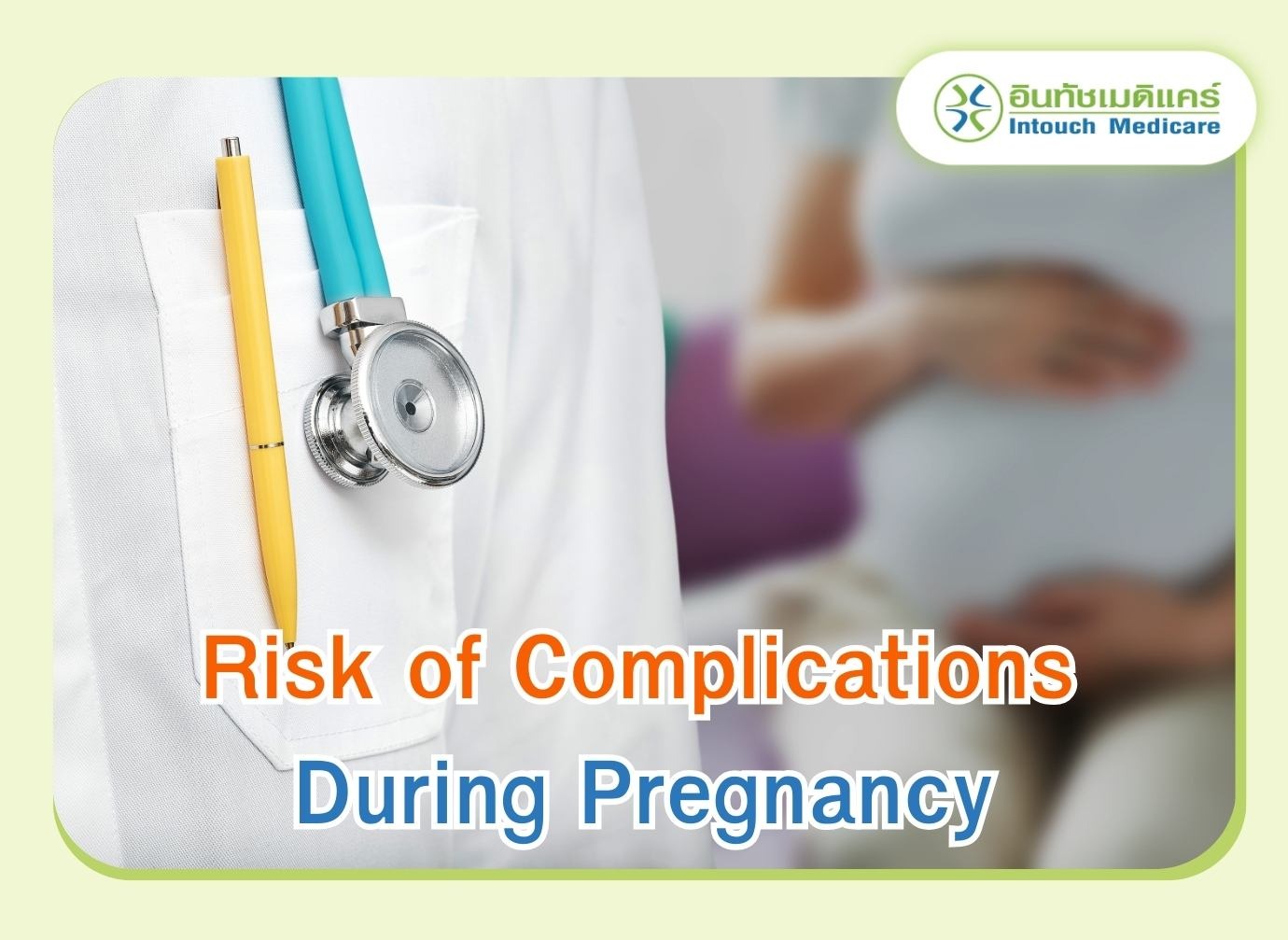PCOS and Pregnancy : What Prospective Parents Need to Know

Irregular periods and frequent missed periods : Is it dangerous? One common cause of these symptoms is PCOS or Polycystic Ovary Syndrome. If PCOS causes irregular periods, does it make it more difficult to get pregnant? This article has the answers.
Frequently Asked Questions About PCOS and Pregnancy
Polycystic ovary syndrome (PCOS) is the most common endocrine disorder in women of reproductive age, affecting approximately 10% of this population. It is the most frequent cause of anovulation, with symptoms including irregular or absent menstrual periods, abnormal uterine bleeding, and infertility. PCOS also leads to complications during pregnancy such as diabetes, hypertension, and pre-eclampsia.
Other symptoms caused by excess androgen levels include hirsutism, acne, oily skin, and male-pattern baldness. PCOS also impacts metabolism, leading to conditions such as central obesity and an increased risk of high cholesterol or high blood sugar (metabolic syndrome). Long-term effects include an elevated risk of type 2 diabetes, endometrial cancer, and cardiovascular diseases. Ultrasound images of the ovaries typically show numerous cysts on both ovaries.

Does PCOS affect regular ovulation?
If you want to know whether ovulation will occur normally, it is essential to understand that Polycystic Ovary Syndrome (PCOS) results from the pathological condition of multiple organs. The primary abnormality is often found in the hypothalamus of the brain, leading to irregular hormone secretion from the anterior pituitary gland. The levels of Follicle Stimulating Hormone (FSH) and Luteinizing Hormone (LH), which are hormones involved in the ovulation process, become abnormal.
"This causes abnormal stimulation of the ovaries' hormone production, including estrogen and progesterone."
Additionally, the ovaries produce more androgens, which are male hormones. As a result, patients exhibit symptoms of elevated male hormone levels. When the body has high levels of male hormones, the growth of ovarian follicles is interrupted, preventing them from reaching the ovulation stage. This disruption results in irregular ovulation cycles.

PCOS contributes to infertility.
It causes chronic anovulation, where the ovarian follicles fail to mature, leading to a lack of follicles capable of developing into eggs for fertilization. This condition results in infertility. Additionally, individuals with PCOS often experience central obesity, insulin resistance, and metabolic syndrome, all of which further contribute to difficulty in conceiving.

Risk of Complications During Pregnancy
Individuals with polycystic ovary syndrome (PCOS) are at a higher risk of experiencing complications during pregnancy. Those with multiple ovarian cysts have up to three times the risk of miscarriage compared to women without PCOS. Studies have also confirmed that multiple ovarian cysts increase the risk of developing gestational diabetes during pregnancy by approximately three times and increase the risk of developing preeclampsia by about 3.5 times. Additionally, there is an increased risk of preterm birth, approximately 1.7 times higher, due to pregnancy complications associated with PCOS. These complications often lead to a higher likelihood of cesarean delivery for individuals with PCOS compared to those without the condition.
Is it dangerous to get pregnant with PCOS?
If someone with polycystic ovary syndrome (PCOS) becomes pregnant, it can pose risks to both the mother and the fetus. Complications such as miscarriage, preterm birth, or even life-threatening conditions can occur. These risks are heightened in cases where multiple ovarian cysts are present, often associated with obesity, acne, elevated male hormones, and irregular menstruation.
Can someone with PCOS conceive naturally?
Individuals with this condition can conceive naturally, but it is more challenging than for those without PCOS and carries a higher risk of miscarriage. Additionally, as individuals with PCOS age, their chances of conceiving naturally decrease. Studies have found that women with PCOS aged 27-30 have a 10-20% chance of experiencing infertility. As age increases to 40 years, the likelihood of infertility rises to approximately 45%.

What should you do to encourage ovulation if you have PCOS?
For individuals with polycystic ovary syndrome (PCOS) and experiencing problems with anovulation, there are several treatment options. These include :
Weight loss and dietary adjustments : This involves reducing weight and modifying eating habits, such as cutting down on sugary and fatty foods.
Management of menstrual irregularities or symptoms resulting from high levels of male hormones, such as hirsutism, male-pattern baldness, and acne: Physicians often prescribe combined oral contraceptives for treatment.
Other treatment methods may include the use of anti-androgen medications and laser hair removal.
However, for those seeking treatment to induce ovulation or address infertility due to PCOS, the following approaches may be considered :
1. Letrozole
Letrozole is an aromatase inhibitor medication that can stimulate ovulation and follicle growth. It is the first-line treatment for inducing ovulation in individuals struggling with infertility due to polycystic ovary syndrome (PCOS). Side effects of Letrozole may include sensations of hot or cold, muscle pain, fatigue, and insomnia.
2. Clomiphene Citrate
Clomiphene citrate is a selective estrogen receptor modulator (SERM) medication used to stimulate ovulation. If multiple eggs are released, there is a 5-7% chance of conceiving twins. Prolonged use of this medication may increase the risk of developing ovarian cysts.
3. Metformin
Metformin is a medication commonly used to treat diabetes by reducing insulin resistance in the body. It is typically prescribed to patients with a body mass index (BMI) equal to or greater than 25 kg/m2. Metformin helps lower male hormones in the blood, reducing the risk of metabolic syndrome and diabetes. However, using Metformin in individuals with polycystic ovary syndrome (PCOS) does not prevent the risk of developing diabetes during pregnancy, nor does it reduce the risk of miscarriage.
"Personally, I recommend using Cyclophene Citrate in conjunction with Metformin for better results rather than choosing either one alone."![]()

4. Gonadotrophin Hormone Injections
These injections are used to stimulate ovulation and increase the chances of pregnancy. They can result in the conception of twins. While they are effective in inducing ovulation, they are more expensive than Letrozole and require frequent monitoring by a physician.
5. Bariatric Surgery
Bariatric surgery is a method that addresses both metabolic syndrome and ovulation. It is considered an effective treatment for infertility. Individuals who undergo bariatric surgery should practice contraception for at least one year post-surgery and maintain a stable weight before attempting to conceive to prevent complications during pregnancy
6. Laparoscopic ovarian surgery
Surgery The exact mechanism of this procedure is not yet fully understood, but it is believed that removing the immature follicles from the ovaries may reduce the levels of male hormones in the blood, thus promoting ovulation. It is used when medication fails to induce ovulation. This method reduces the chances of conceiving twins but carries risks such as anesthesia complications and surgical risks.
7. In Vitro Fertilisation (IVF) and Intracytoplasmic Sperm Injection (ICSI)
In Vitro Fertilization (IVF) and Intracytoplasmic Sperm Injection (ICSI) These methods are often used when medication fails. They involve fertilizing the egg and sperm in a laboratory dish. They can reduce the chances of conceiving twins but are costly.
From this article, many may already know the relationship between PCOS and pregnancy. Polycystic ovary syndrome (PCOS) is the most common cause of anovulation, leading to irregular, infrequent, or absent menstrual periods and infertility. It can also lead to complications during pregnancy and increase the risk of endometrial cancer. Additionally, it is associated with metabolic syndrome, increasing the risk of diabetes and central obesity. Individuals with PCOS can conceive naturally, but it is more challenging than for those without PCOS and carries a higher risk of miscarriage.
Treatment options to induce ovulation or manage infertility include medications such as Letrozole, Cyclophene Citrate, and Gonadotrophins. If medication fails, options like IVF or ICSI may be considered. Additionally, surgical options such as ovarian drilling and bariatric surgery are also available for treating PCOS.
|
Interesting Articles
Reference
Pregnancy-related outcomes for women with polycystic ovary syndrome, Rose McDonnell and Roger J Hart
Effects of metformin on early pregnancy loss in the polycystic ovary syndrome. Journal of Clinical Endocrinology and Metabolism, Daniela J Jakubowicz, Maria J Iuorno, Salomon Jakubowicz, Katherine A Roberts, John E Nestler
International Evidence-based Guideline for the assessment and management of polycystic ovary syndrome 2023, Helena Teede
For more info and make appointment
Hot Line 081-562-7722
Composer : Narada Piratchavisut, MD.
Last edited : 23/05/2024
